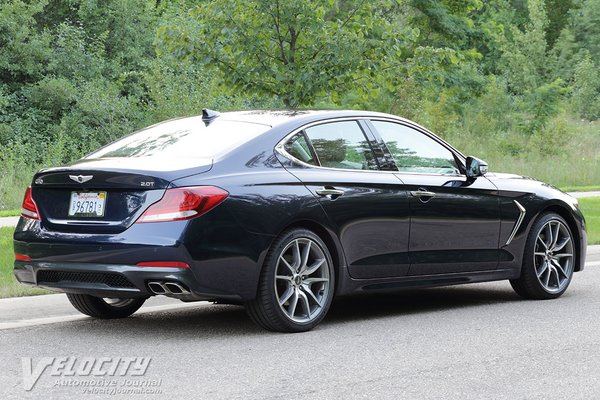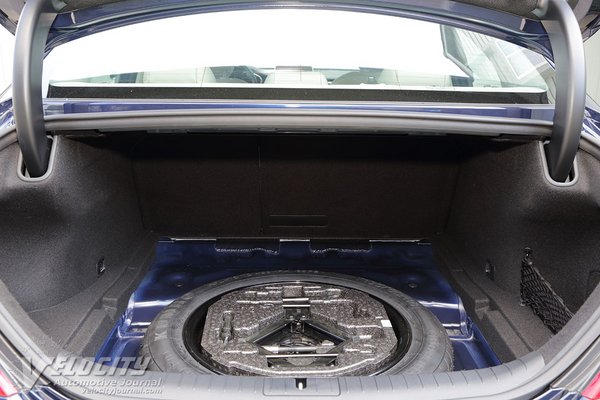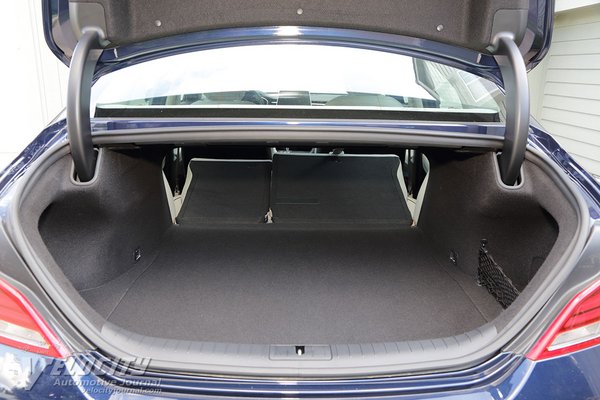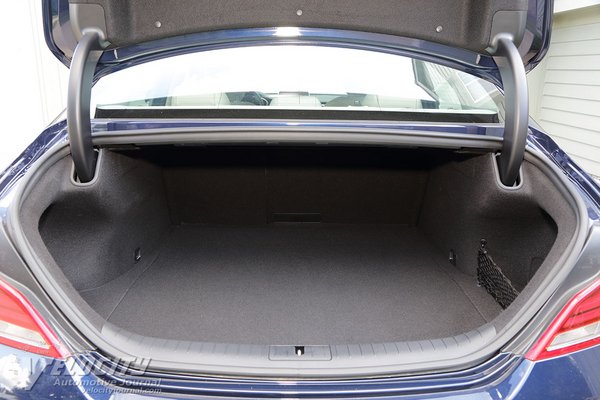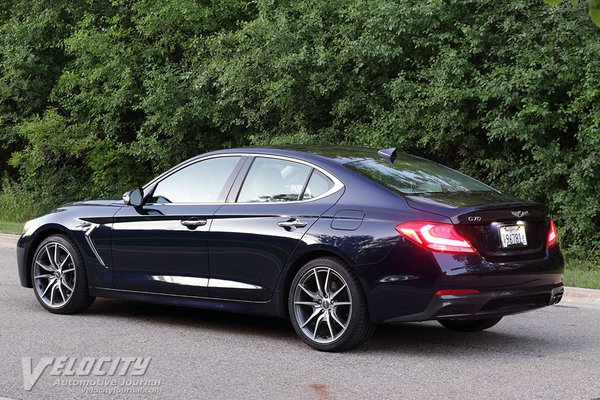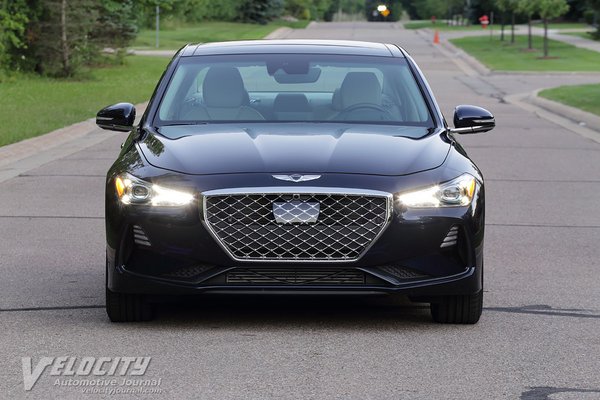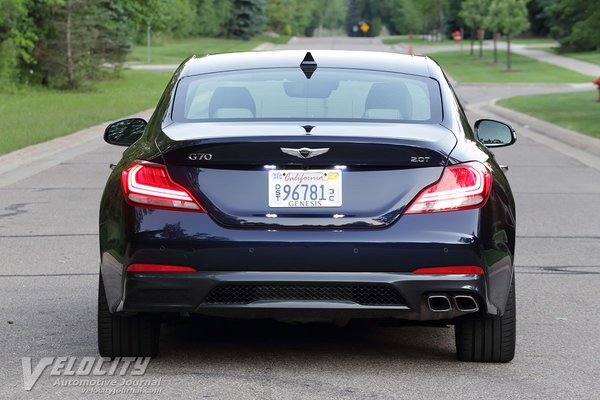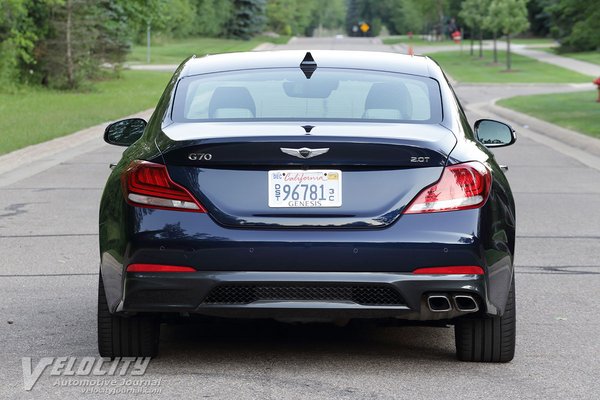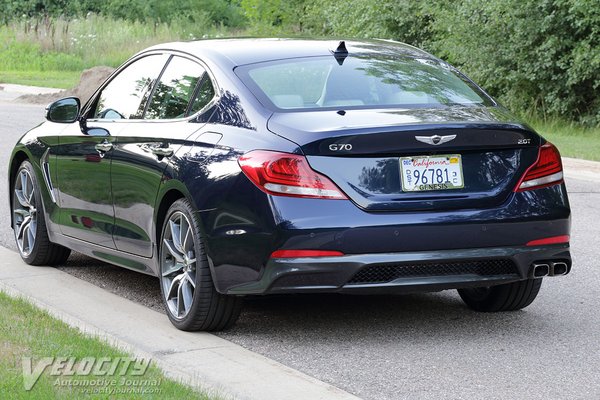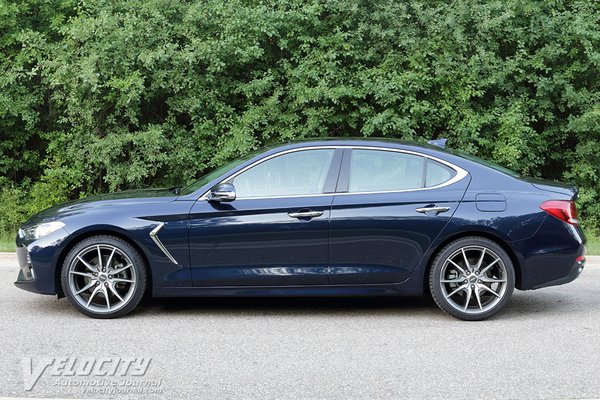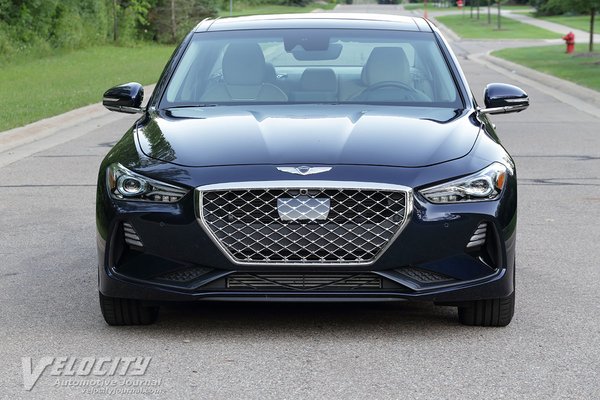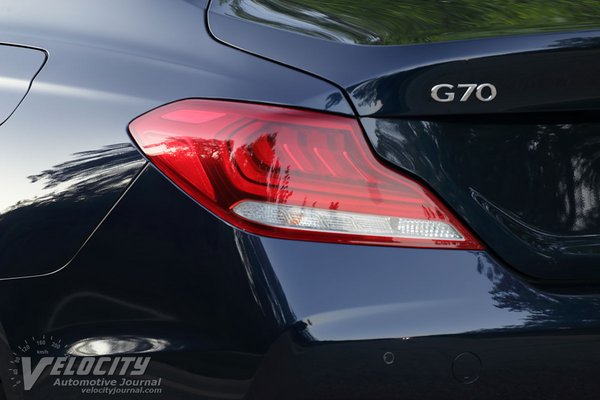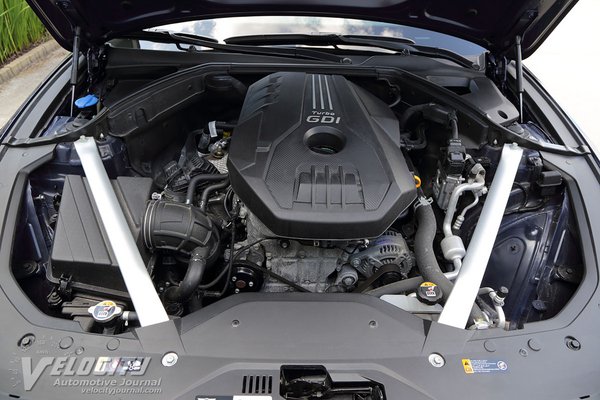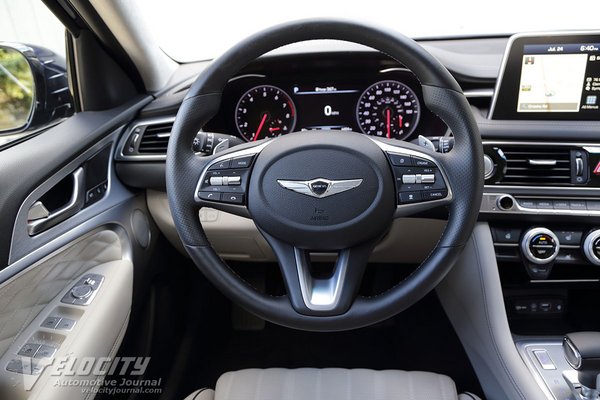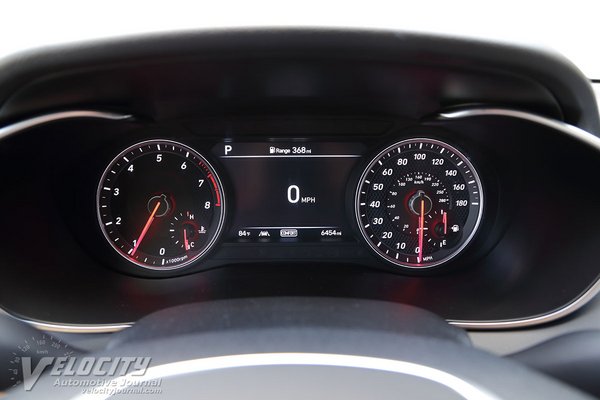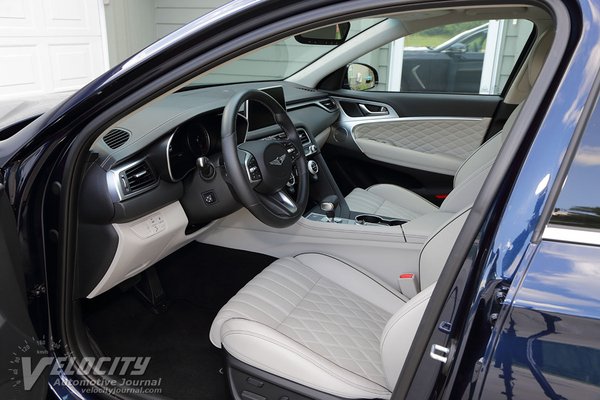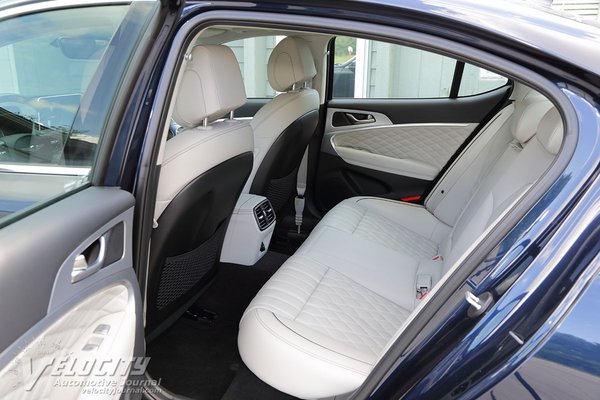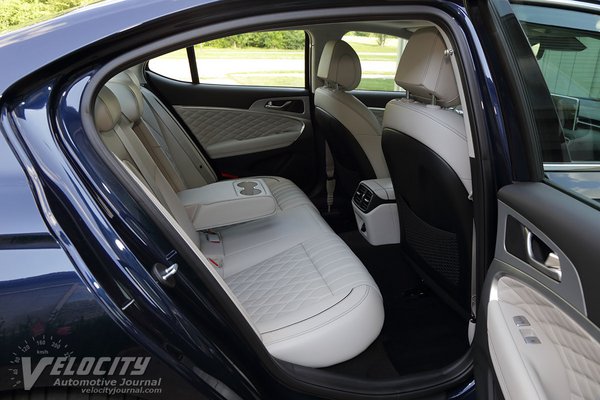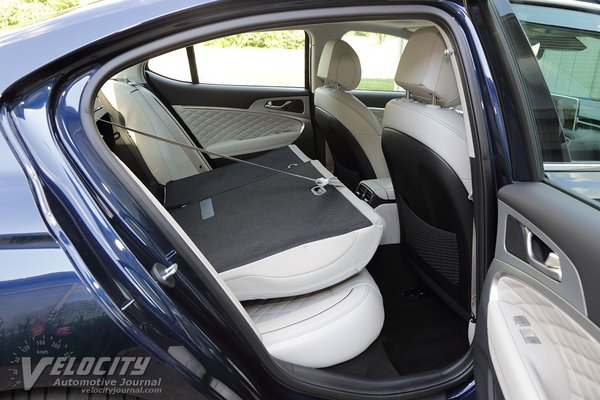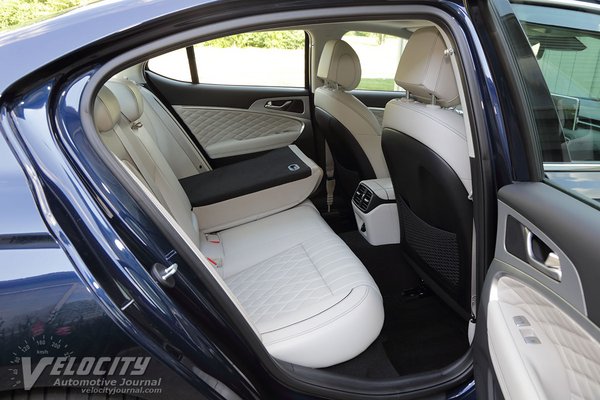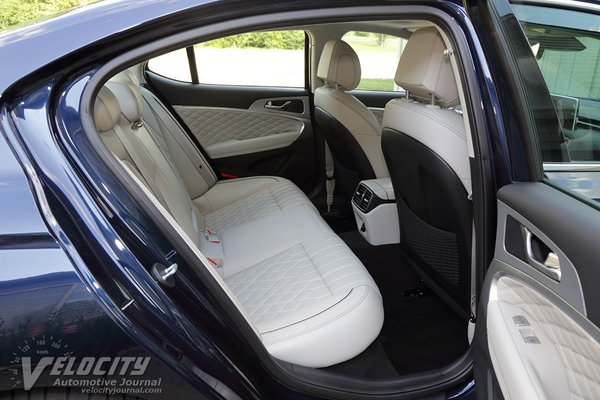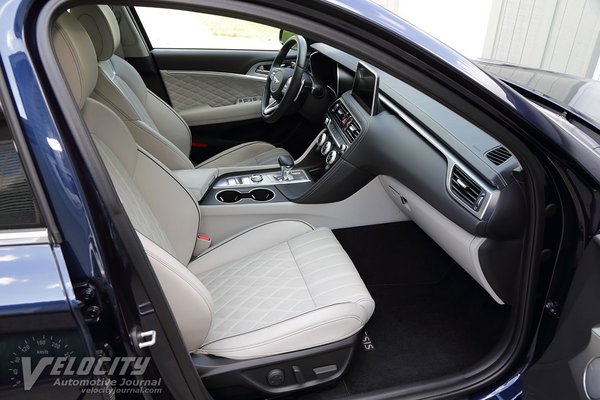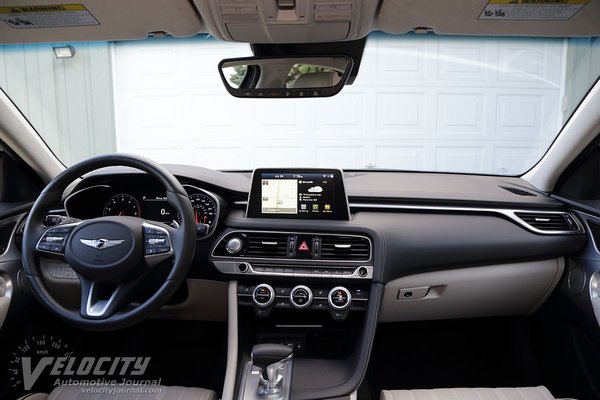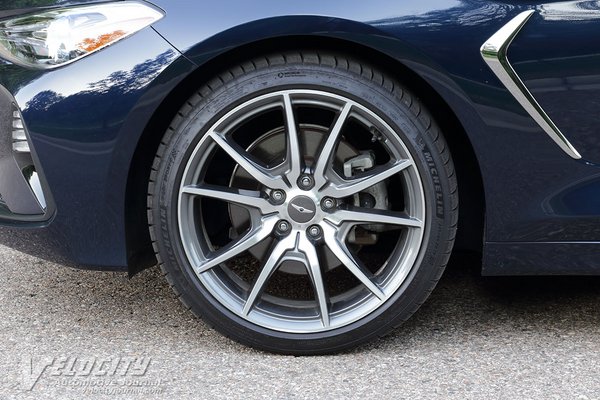2020 Genesis G70 2.0T RWD
09/01/2020
Shahed Hussain
Hyundai launched Genesis as a separate brand a few years ago to establish a presence in the premium luxury segment. Currently three sedans are in its lineup: the entry-level G70, midrange G80, and flagship G90. A GV80 SUV joins the range in late 2020. The G70 sedan has been in the US market since 2018 and is positioned against the BMW 3-Series, Lexus IS, Audi A4, Cadillac CT4, and Infiniti Q50. Like its rivals, the G70 is available in rear-drive and all-wheel drive configurations.
Base price for the 2020 G70 starts at a reasonable $35,450 for the rear-wheel drive 2.0T equipped with the 8-speed automatic. Opting for the 6-speed manual (RWD only) bumps up the MSRP to $38,500. Moving up to the G70 3.3T V-6 raises the base price to $44,650. Choosing all-wheel drive adds another $2,000 to either model. We tested a 2020 G70 2.0T equipped with the Prestige package ($8,450). Including the $1025 freight charge sums up to an MSRP of $44,925. Notable standard and optional equipment includes: Nappa leather covered seats, heated/ventilated front seats, heated rear seats, 12-way power driver and 8-way passenger seats, heated steering wheel, navigation, Android Auto, Apple CarPlay, sunroof, Lexicon 15-speaker audio system, 19-in. alloy wheels, limited-slip differential, surround view monitor, Qi wireless charging, and head-up display. Safety technologies include: forward collision avoidance, blind-spot collision warning with rear cross-traffic collision warning, smart (adaptive) cruise control, and lane keep assist.
Genesis fits either a 2.0L inline-4 or a 3.3L V-6 in the G70. Both engines are turbocharged, but the 3.3L is boosted by twin turbos vs. a single turbo in the 2.0L. The V-6 rated output is 365-hp @ 6,000 RPM and 376 lb.-ft. @ 1300-4500 RPM, placing the G70 near the top in its class. Similarly, the 2.0L direct-injected turbo four is also competitive with 252-hp @ 6200 RPM and 260 lb.-ft. @ 1400-4000 RPM when equipped with the 8-speed automatic. Opting for the 6-speed manual (2.0T only) nets another 3-hp for a total of 255-hp. The aluminum 2.0L intercooled turbo features direct-injection, balance shaft, and continuously variable valve-timing. Mated to the 8-speed automatic, the gearbox is programmed to match revs and hold the selected gear around curves. To minimize fuel consumption, sixth (0.83:1), seventh (0.65:1) and eighth (0.56:1) are all overdrive ratios, and are coupled to a 3.73:1 final drive ratio. According to the EPA, the 2.0T is rated at 20/27 MPG (city/hwy.), but we achieved 25-32 MPG in mixed city and highway driving.
There are no surprises in the G70 suspension design: MacPherson struts and a stabilizer bar in front, accompanied by a rear multi-link rear layout with coil springs, dampers, and stabilizer bar. Brakes are discs at all four wheels: 12.6 in. dia. front rotors and 12.4 in. dia. rear rotors. A limited-slip differential is standard on RWD models. Our test vehicle was equipped with Michelin Pilot Sport 4 tires with staggered fitment (P225/40ZR19 front & P255/35ZR19 rear), wrapped around 19-in. diameter alloy wheels. Steering is via a motor-assisted rack-and-pinion system. Curb weight for the 2.0T RWD with the 8-speed automatic is 3604 lbs.
The G70 interior design seamlessly blends function and luxury with superb materials and build quality. Most touch points are padded surfaces. Quilted Nappa leather seats provide superb lateral support and comfort. Both front seats are ventilated and heated. The low roofline results in limited front headroom: occupants taller than 5'-10" will need to lower the front seat to avoid brushing the headliner. Rear passenger will be pleased to find supportive seating for two occupants, but the center position is best suited for short trips. Rear legroom is acceptable, but as in the front, headroom is tight for occupants taller than 5'-10".
The gauge cluster is cleanly laid out with an analog tachometer and speedometer. Unlike most speedometers, the G70's speedometer markings change from 10 MPH increments to 20 MPH increments past 60 MPH. Smaller fuel level and coolant temperature gauges are inset within the larger gauges. A central multi-function display monitors vehicle status and can be configured as a digital speedometer. The leather-wrapped heated steering wheel has integrated controls for audio, phone and cruise control settings. A tablet-style infotainment touchscreen display atop the dashboard is within easy reach of the driver. Audio and climate control settings are controlled via knobs and buttons on the center stack. A 12V power outlet, line-in audio jack and USB ports are conveniently located under the HVAC controls. Dual cupholders are on the center console behind the compact gearshift lever.
Since the G70 is the sole sport sedan in the Genesis lineup, suspension tuning is aimed at driving enthusiasts. As we expected, the springs and dampers deliver a firm, tightly snubbed ride at both urban and highway speeds. Over properly maintained highways, we appreciated the excellent body control, but on patched and potholed road surfaces, the ride became jittery. The moderately-assisted steering is exceptionally accurate and communicative. We disabled the lane keeping assist feature, as it added undesired steering input. A benefit of the stiff suspension and tight steering is excellent stability and tracking at 80+ MPH. The brakes deliver rapid deceleration along with firm, progressive pedal actuation. Tire and wind noise are pleasantly hushed at highway cruising speeds. We took a 320-mile round trip from Detroit to Grand Rapids, MI during our review period, and the G70 performed admirably as a long-distance cruiser.
Although the 2.0L turbo is the base powerplant, we expect that few G70 customers will need to upgrade to the 3.3T. The 2.0L delivers excellent midrange throttle response, and the 8-speed automatic responds with quick gearchanges to pass slower traffic. Steering wheel paddles enable shifting on demand. Selecting Sport on the center console drive mode dial restricts the transmission from shifting past sixth gear, although both seventh and eighth gear can be selected manually via the paddles. Since the top three ratios are overdrive, we often had to downshift into fifth gear to pass highway traffic quickly. A few taps on the paddle shifter and the transmission shifts smoothly into the requested gear. Customers could spend more for the 3.3T, but the 2.0T should be adequate for most driving situations.
After spending a week with the G70, it is apparent that much development effort was expended to engineer such a polished vehicle. The G70 simply has no rough edges to indicate that it is the first sport sedan from Genesis. In this crowded segment with multiple models from German, US, and Japanese brands all competing for market share, any new entrant must be exceptional to be competitive. We would recommend anyone searching for an affordable sport sedan to seriously consider the G70.

